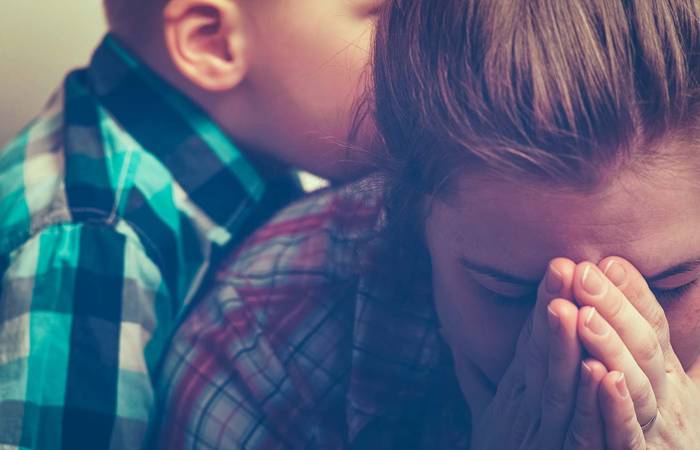Like what you see?
Sign up to receive more free parenting advice.
Thank you for subscribing to our newsletter!
Lifestyle

Credit: iStock.com/Vesnaandjic
Most women dramatically reduce their alcohol intake on learning they are pregnant, but by the time their child is five they are back to their pre-pregnancy drinking levels, a new international study has found.
The research, led by the Murdoch Children’s Research Institute aimed to investigate the extent to which becoming a parent protects against heavy and problematic drinking in young men and women.
Lead author, MCRI psychologist Dr Rohan Borschmann, who is also a research fellow at the University of Melbourne, says most mothers with a child aged under one take a brief time out from drinking, but it doesn’t last.
The study drew on data from three longitudinal population studies – two in Australia and one in New Zealand – which tracked the drinking habits of more than 4,000 people in their teens, twenties and thirties.
Before motherhood, the study found that 25% reported binge drinking in the past week (5 or more drinks in one sitting), 11% met the criteria for alcohol abuse or dependence, and the average number of drinks consumed at their last session was 3.8 drinks.
“By the time their youngest child has turned five, most mothers have returned to their pre-motherhood drinking patterns,” Dr Borschmann says.
One of the important messages of our findings is that both men and women need to find different ways to put their brakes on their drinking during this time of life.Dr Rohan Borschmann
Stay up to date with the latest news and articles from First Five Years
Thank you for subscribing to our newsletter!
15% of mothers reported binge drinking
Dr Borschmann says the research found that 15 per cent of mothers with a child aged five or older reported binge drinking in the past week.
“The reasons why women increase their drinking over the first five years after childbirth need to be explored in future studies.
“One of the important messages of our findings is that both men and women need to find different ways to put their brakes on their drinking during this time of life.
“The traditional combination of marriage, mortgage and kids no longer has any impact on men’s drinking, while motherhood only prompts women to have a brief reprieve from drinking.”
The research reported little change in the drinking patterns of men as they became fathers.
“Our results showed that men are not ‘maturing out’ of drinking when they become fathers as they once did,” Dr Borschmann says.
“One or two generations ago this transition was one where men cut down their drinking quite a bit, often because their wives weren’t drinking much, but our findings suggest that the transition to parenthood no longer makes any difference for men, and so that one powerful influence that helped men to cut down their drinking (i.e. becoming a father) is no longer active.
“Also, because adults today are typically becoming parents at a later age, they come to parenthood with much more established patterns of drinking over a longer period of time.”
The benefits of reducing parental drinking
Dr Borschmann says policy advisors and health professionals could send a message to people that if they can manage to reduce their drinking over the first 12 months, they have shown it can be done longer term.
“Reducing parental drinking is likely to produce a double dividend that is both good for the parent and good for the child,” he says.
“There are lots of potentially poor outcomes for the children of people with risky drinking patterns, and these result from both biological and social influences.
“These can include the effects of alcohol on babies while they’re in the womb or breastfeeding, as well as a poor bond with their parent due to heavy alcohol use, neglectful parenting due to being intoxicated, and also modelling unsafe drinking behaviours which are then replicated by children and teenagers at a later age.
“There is a truckload of science supporting this. It is therefore really important to examine the effects of parenthood on alcohol use in young adults.”
Dr Borschmann says policy makers and health professionals might like to explore new ways of encouraging parents to cut down their drinking, given that neither motherhood nor fatherhood is prompting them to make long-term changes.
“Given that men showed no change, it would be very unfair to single out mothers, after all, they were the ones who demonstrated positive change over the first five years.
“In light of the numerous poor outcomes associated with having a parent who drinks excessively, investment in interventions in adults aged 25–35 years is likely to yield a double dividend for parents and the next generation alike.”
The paper, Alcohol and parenthood: an integrative analysis of the effects of transition to parenthood in three Australasian cohorts is published in the latest edition of Drug and Alcohol Dependence journal.
Participants for the study came from the Australian Temperament Project, the Victorian Adolescent Health Cohort Study and the Christchurch Health and Development Study.






